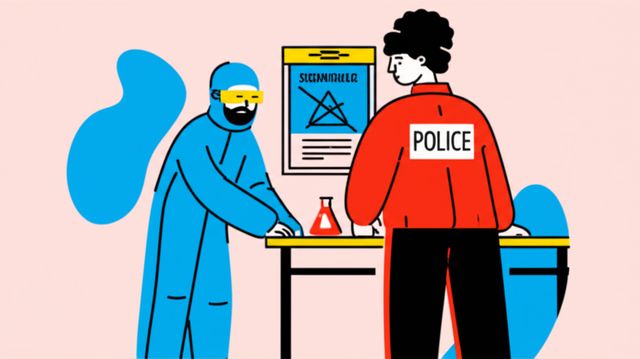Crime Scene Investigation
Crime Scene Investigation (CSI) is a specialized field that involves the collection, analysis, and interpretation of evidence from crime scenes. CSI professionals are responsible for documenting the crime scene, collecting evidence, and reconstructing events. They work closely with law enforcement officers and other forensic professionals to help solve crimes.
Why Study Crime Scene Investigation?
There are many reasons why someone might want to study Crime Scene Investigation. Some people are interested in the topic out of curiosity, while others may be considering a career in law enforcement or forensic science. CSI professionals are in high demand, and a degree in CSI can open up a wide range of career opportunities.
How Online Courses Can Help You Learn About Crime Scene Investigation
There are many ways to learn about Crime Scene Investigation, and online courses can be a great option for those who want to learn at their own pace and on their own schedule. Online courses offer a variety of learning materials, including video lectures, readings, and interactive exercises. They also provide opportunities for students to ask questions and interact with other students and instructors.
The following are some of the skills and knowledge that you can gain from online courses in Crime Scene Investigation:
- How to document a crime scene
- How to collect and preserve evidence
- How to analyze evidence
- How to reconstruct events
- How to write reports
- How to testify in court
Online courses can be a great way to learn about Crime Scene Investigation and develop the skills you need to succeed in this field. However, it is important to note that online courses alone are not enough to fully understand this topic. To gain a comprehensive understanding of CSI, you will need to supplement your online learning with hands-on experience and training.
Careers in Crime Scene Investigation
There are many different career paths available to those who study Crime Scene Investigation. Some of the most common careers include:
- Crime scene investigator
- Forensic scientist
- Law enforcement officer
- Forensic nurse
- Forensic accountant
- Forensic engineer
- Forensic anthropologist
- Forensic odontologist
- Forensic pathologist
- Forensic psychologist
The specific career path that you choose will depend on your interests and qualifications. However, all of these careers offer a rewarding opportunity to make a difference in the world.
Personality Traits and Personal Interests That Fit Well with Studying Crime Scene Investigation
People who are interested in studying Crime Scene Investigation typically have the following personality traits and personal interests:
- Strong attention to detail
- Analytical and problem-solving skills
- Good communication and interpersonal skills
- Interest in science and law enforcement
- Desire to make a difference in the world
If you have these personality traits and personal interests, then you may be well-suited for a career in Crime Scene Investigation.
Benefits of Studying Crime Scene Investigation
There are many benefits to studying Crime Scene Investigation, including:
- Increased knowledge of forensic science and law enforcement
- Development of critical thinking and problem-solving skills
- Improved communication and interpersonal skills
- Preparation for a career in a variety of fields
- Opportunity to make a difference in the world
If you are interested in a career in law enforcement, forensic science, or a related field, then studying Crime Scene Investigation can provide you with the knowledge and skills you need to succeed.
Projects for Studying Crime Scene Investigation
There are many different projects that you can pursue to further your learning in Crime Scene Investigation. Some of the most common projects include:
- Volunteering at a local police department or crime lab
- Interning with a forensic scientist
- Conducting your own research
- Writing a case study
- Creating a presentation
These projects can help you to gain hands-on experience and develop the skills you need to succeed in this field.
Projects for Professionals in Crime Scene Investigation
Professionals in Crime Scene Investigation work on a variety of projects, including:
- Documenting crime scenes
- Collecting and preserving evidence
- Analyzing evidence
- Reconstructing events
- Writing reports
- Testifying in court
These projects require a high level of skill and knowledge. However, they also provide an opportunity to make a difference in the world.


